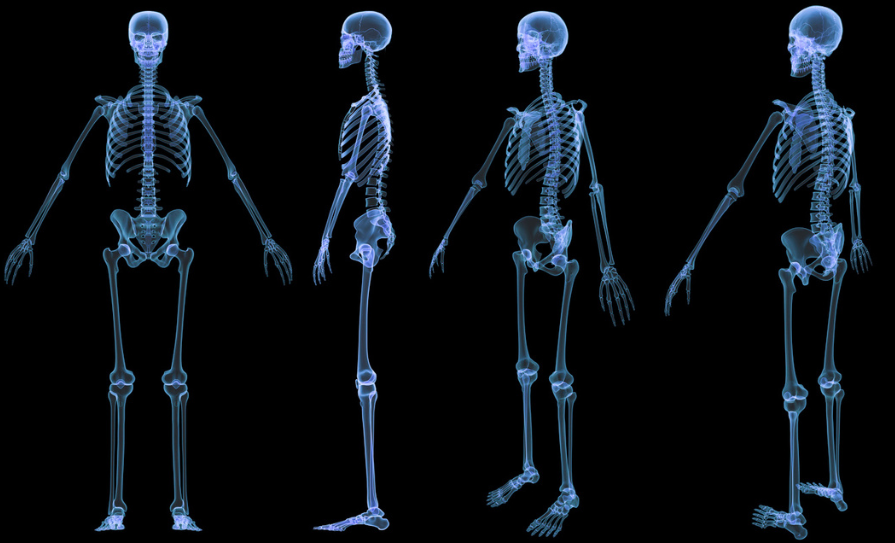Reference: August 2024 | Issue 8 | Vol 10 | Page 26
Therapeutic cancer vaccines are being heralded as the next big thing in the rapidly advancing field of medical oncology. If they live up to their potential, they will represent a revolutionary leap in the realm of immuno-oncology – offering a personalised, targeted approach to effectively harness the immune system against cancer cells while sparing healthy tissues.
A key challenge in cancer treatment is that many patients do not respond to conventional therapies, including immunotherapies, often for unknown reasons. Personalised, targeted anti-cancer vaccines could address this issue.
“In many ways cancer vaccines are the ultimate in personalised medicine – the ability to tailor a vaccine to an individual so that their immune system is primed to attack the cancer, which is something we could only have dreamt of a number of years ago,” Prof Mark Lawler, Professor of Digital Health, Faculty of Medicine, Health and Life Sciences, Queen’s University Belfast and Co-Lead of the All-Island Cancer Research Institute, told Update.
Although therapeutic cancer vaccines could represent a transformational leap forward in the management of cancer, the results of many clinical trials conducted in the field in the last two decades have not met expectations, noted Prof Jarushka Naidoo, Professor of Medical Oncology, RCSI and Consultant Medical Oncologist, Beaumont Hospital, Dublin.
Prof Naidoo told Update there had been disappointment after a number of highly anticipated prior anti-cancer vaccine candidates had failed, despite some going as far as phase 3 trials. She referred to the poor results of the MAGE-A3 vaccine, a recombinant-protein-based vaccine, which failed to demonstrate efficacy in a phase 3 trial of lung cancer patients.
The overall success of anti-cancer vaccines to date has remained modest in the management of cancer, with only three US Food and Drug Administration (FDA)-approved anti-cancer vaccines currently: Bacille Calmette-Guerin for superficial bladder cancer; sipuleucel-T for metastatic castrate-resistant prostate cancer; and talimogene laherparepvec for metastatic melanoma.
“In general, the degree of immune response we obtain from a vaccine is at a low level and is designed to protect against future infections, etc, when re-exposure will lead to a rapid upregulation of that response,” said Prof Naidoo.
“In cancer, a patient requires a far more impressive ‘bang for the buck’ as a treatment strategy for an advanced cancer. So far, anti-cancer vaccines have not delivered that. However, using these new constructs [formulations of vaccines], these may be able to do better, using a cancer-specific or tailored approach. Overall, while we remain cautious due to prior poor outcomes, we have to be open-minded as new treatments often come from old ideas that are revived with better technologies.”
Latest breakthroughs
Major breakthroughs in therapeutic anti-cancer vaccines in the last couple of years have marked a turning point in their potential as a key future cancer treatment under the umbrella of immunotherapies.
Among the most notable is the lab and trial success of personalised neo-antigen vaccines, which are tailored to the unique mutations found in an individual’s tumour. A number of early clinical trials have demonstrated their potential to induce strong immune responses and improve survival rates in patients with melanoma, lung cancer, and other solid tumours.
Additionally, advancements in adjuvant formulations and delivery systems have enhanced the efficacy and stability of these vaccines, making them more effective in clinical settings. Aiding the development of these personalised vaccines has been artificial intelligence-aided genetic profiling that helps identify the antigens present in patients and how to better target them. That, in turn, has helped accelerate clinical testing and, if the vaccines are approved, could help meet patient demand.
Platforms and technologies
The landscape of therapeutic anti-cancer vaccines is diverse, encompassing a number of different platforms and technologies. Peptide-based vaccines, which use short sequences of amino acids to mimic tumour antigens, have been widely studied for their ability to trigger specific immune responses.
Dendritic cell vaccines, which involve pulsing a patient’s own dendritic cells with tumour antigens, have also shown promise in clinical trials, particularly for melanoma and prostate cancer. DNA-based cancer vaccines have also emerged as a promising approach, though with limitations in immunogenicity and heterogeneity which require refinement.
Among these platforms, mRNA-based anti-cancer vaccines have recently gained significant attention – mRNA-based vaccines formed an important part of the response to Covid-19. This form of vaccination was initially explored within various medical fields, including oncology. In cancer, the vaccines work by delivering mRNA encoding tumour antigens into the body, where they are translated into proteins that trigger a strong and precise immune response.
The flexibility and rapid production capabilities of mRNA vaccines make them particularly attractive for cancer therapy. This allows for quick adaptation to different tumour profiles and mutations, while offering the potential for improved treatment outcomes, reduced toxicity, and enhanced precision in cancer treatment.
Therapeutic mRNA cancer vaccine technology has facilitated the rapid delivery of individualised neo-antigen vaccines, which could soon be fully integrated into a routine oncologic workflow. They can be rapidly manufactured as individualised vaccines with multiple neo-antigens, increasing the likelihood of targeting diverse cancer cell populations within a patient. Moreover, mRNA vaccines could also build and maintain long-term immunological memory, making it possible to prevent tumour recurrence.
Promising mRNA-based cancer vaccines
Clinical trials are underway to evaluate the efficacy of mRNA vaccines in treating a number of cancers, with early results indicating potential benefits in terms of safety and immunogenicity.
These vaccines currently fall into two categories: Personalised cancer immunotherapies, which use a patient’s genetic material extracted from their own tumours; and therapeutic cancer immunotherapies, which are pre-made and tailored to specific cancer types.
The Mobilize trial is a phase 1/2 open-label, non-randomised clinical trial evaluating the safety and anti-tumour activity of mRNA-4359 in adults who have confirmed locally advanced or metastatic cancer. This includes: Cutaneous melanoma; non-small cell lung cancer; non-muscle invasive bladder cancer; head and neck squamous cell carcinoma; basal cell carcinoma; and triple-negative breast cancer.
The anti-cancer vaccine is being evaluated on its own and in combination with the immune checkpoint inhibitor (ICI), pembrolizumab. The trial is now open for patient enrolment in a number of sites in the UK, the US, and Australia
“This research is still in the early stages and may be a number of years from being available to patients, but this trial is laying crucial groundwork that is moving us closer towards new therapies that are potentially less toxic and more precise, according to Dr David Pinato, Consultant Medical Oncologist at Imperial College Healthcare NHS Trust, and investigator of the UK arm of the Mobilize trial. “We desperately need these to turn the tide against cancer.”
Combination treatment
As in the case of the Mobilize trial, much of the latest research is focusing on combining anti-cancer vaccines with existing successful immunotherapy agents. Stimulating reactive T-cells targeting patient-specific tumour neo-antigens to augment the efficacy of ICI may represent a novel promising modality for cancer treatment.
Some of the most promising initial results of this approach have been seen in a novel personalised neo-antigen vaccine for melanoma. The results of an open-label, randomised, phase 2b trial (KEYNOTE-942/mRNA-4157-P201) were published in The Lancet earlier this year.
In the study, the combination of adjuvant pembrolizumab with mRNA-4157, an mRNA-based individualised neo-antigen therapy, produced clinically superior outcomes compared with checkpoint blockade alone in patients with completely resected stage IIIB-IV cutaneous melanoma.
The primary endpoint was recurrence-free survival (RFS) in the intention-to-treat population, and secondary endpoints included distant metastasis-free survival (DMFS) safety, and tolerability. Median follow-up was two years.
The results to date show that treatment with mRNA-4157 (V940), in combination with pembrolizumab, led to a clinically meaningful improvement in RFS, reducing the risk for recurrence or death by 49 per cent, compared with pembrolizumab alone. The combination arm also continues to demonstrate a meaningful improvement in DMFS compared with pembrolizumab alone, reducing the risk of developing distant metastasis or death by 62 per cent.
Dr Heather Shaw, Consultant Medical Oncologist and national coordinating investigator of the trial, said the results to date of the bespoke neo-antigen vaccine are “one of the most exciting things we’ve seen in a really long time”. She believes there is a real hope that these vaccines “will be the gamechangers in immunotherapy”.
On the basis of this positive outcome, the US FDA awarded breakthrough designation to the vaccine in February 2023. A phase 3 trial, which aims to recruit approximately 1,100 patients, is now underway and is expected to provide a definitive answer on whether personalised neo-antigen vaccines can become a mainstream treatment approach in melanoma care.
Pancreatic cancer
Using a similar approach, an mRNA-based therapeutic cancer vaccine candidate, autogene cevumeran, has shown potential in stimulating an immune response that may reduce the risk of pancreatic cancer recurrence (specifically resected pancreatic ductal adenocarcinoma, [PDAC]) following surgery.
PDAC is the third leading cause of cancer death in the US and the seventh worldwide, with an increasing incidence. A survival rate of 12 per cent has remained largely stagnant for nearly 60 years.
New results from a phase 1 clinical trial, presented at the American Association for Cancer Research Annual Meeting in San Diego, US, earlier this year, show that the individualised neo-antigen vaccine based on uridine mRNA–lipoplex nanoparticles activated immune cells that persisted in the body up to three years after treatment in certain patients. In addition, a vaccine-induced immune response correlated with reduced recurrence risk.
In the study, researchers synthesised mRNA neo-antigen vaccines in real time from surgically resected PDAC tumours. After surgery, the researchers sequentially administered atezolizumab (an anti-PD-L1 immunotherapy), autogene cevumeran (a maximum of 20 neo-antigens per patient), and a modified version of a four-drug chemotherapy regimen (mFOLFIRINOX, comprising folinic acid, fluorouracil, irinotecan, and oxaliplatin).
The endpoints included vaccine-induced neo-antigen-specific T-cells by high-threshold assays, 18-month RFS, and oncologic feasibility. A total of 16 patients were treated with atezolizumab and autogene cevumeran, followed by 15 patients with mFOLFIRINOX.
“The latest data from the phase 1 trial show that we are on the right track. This investigational mRNA vaccine can trigger T-cells… that may recognise pancreatic cancers as foreign,” said Dr Vinod Balachandran, Pancreatic Cancer Surgeon-scientist at Memorial Sloan Kettering Cancer Centre, US. “Moreover, we continue to detect vaccine-stimulated T-cells at substantial frequencies in patients’ blood up to three years after vaccination.”
A phase 2 trial is now underway, studying whether the mRNA approach works better than the current standard treatment.
“I think this is a very exciting development,” Prof Austin Duffy, Consultant Oncologist at the Mater Misericordiae University Hospital, Dublin, and Director of Research at START Dublin, told Update.
“The idea of a vaccine preventing cancer recurrence after surgery (or indeed being a treatment proper for more advanced cancer) has been around for a long time, but the mRNA technology seems to be making it a reality. The technique allows for individualising for a patient’s own tumour, exploiting what makes it different from ‘self’ (thereby stimulating an immune reaction), and the technical hurdles seem to have been overcome – undoubtedly helped by the Covid-19 experience – to allow it all to happen in a timely manner. Obviously we’re only in the early stages of this journey, but the clinical experience as presented is very encouraging and can only get better. An amazing development in science and medicine.”
World’s first lung cancer vaccine
There is also promising early research in DNA-based therapeutic cancer vaccines.
In March, it was announced that a DNA-based lung cancer vaccine candidate in the UK had received funding from the Cancer Research UK and the CRIS Cancer Foundation for two years of laboratory research and the initial manufacturing of 3,000 doses.
A team of scientists from the University of Oxford, the Francis Crick Institute, and University College London (UCL) are working on a ‘LungVax’ vaccine. This vaccine is based on technology similar to that used in the Oxford/AstraZeneca Covid-19 vaccine (ChAdOx delivery system). It carries a DNA strand that trains the immune system to recognise neo-antigens indicative of abnormal lung cancer cells, thereby activating the immune system to target and eliminate these cells, ultimately aiming to stop the cancer.
If the laboratory results are positive, the researchers intend to offer vaccination to individuals who have had curative surgery for early-stage lung cancer. Currently, lung cancer accounts for the highest rate of cancer-related deaths worldwide, including in Ireland.
Prof Mariam Jamal-Hanjani, UCL and the Francis Crick Institute, who will be leading the LungVax clinical trial, said: “We think the vaccine could cover around 90 per cent of all lung cancers, based on our computer models and previous research, and this funding will allow us to take the vital first steps towards trials in patients.
“LungVax will not replace stopping smoking as the best way to reduce your risk of lung cancer. But it could offer a viable route to preventing some of the earliest stage cancers from emerging in
the first place.”
Separately, another DNA based anti-cancer vaccine combination treatment is showing early promise in ovarian cancer. An open-label prospective randomised study evaluated the safety and efficacy of ELENAGEN, a novel anti-cancer therapeutic DNA plasmid encoding p62/SQSTM1 protein, as an adjuvant to chemotherapy with gemcitabine in patients with advanced platinum-resistant ovarian cancer. The 2024 study found the treatment increased progression free survival from 2.8 months to 7.2 months compared to chemotherapy.
Prevention
As well as the significant ongoing progress in therapeutic cancer vaccines, research continues in the field of preventative vaccines for cancer.
The biggest success story in this area to date is the development of the human papillomavirus (HPV) vaccine, which is projected to facilitate the near elimination of cervical cancer by 2040. Current HPV vaccines protect against subtypes of HPV that cause approximately 90 per cent of cervical cancers, 90-to-95 per cent of HPV-related anal cancer, and 90 per cent of genital warts. Published data in The Lancet shows that the vaccine dramatically reduced cervical cancer rates by almost 90 per cent in women in their 20s who were offered it at ages 12-to-13.
HPV vaccination uptake has varied over the years, but is currently just under 80 per cent. A vaccine uptake of 90 per cent in girls by the age of 15 is one of the targets required to achieve the goal of cervical cancer elimination by 2040.
The European Commission’s Europe’s Beating Cancer Plan has set a target for member states to reach HPV vaccination rates of 90 per cent for girls and to significantly increase the vaccination of boys by 2030. The plan also aims to ensure access and increased uptake of hepatitis B (HBV) vaccination to prevent liver cancer.
Worldwide, chronic hepatitis B and C cause 80 per cent of all liver cancer, which is the second most common cause of cancer death. The HBV vaccine was deemed the first preventative cancer vaccine because, by preventing chronic HBV infections, it prevents liver cancer caused by the virus.
The next big breakthrough in preventative cancer vaccines is a potential Epstein-Barr virus (EBV) vaccine. EBV is highly correlated with many malignancies, including nasopharyngeal carcinoma, natural killer T-cell lymphoma, gastric cancer, lung cancer, liver cancer, oesophageal cancer, breast cancer, and cervical cancer. In the US and Australia, early stage trials are ongoing for a number of investigational prophylactic EBV vaccines, which would help prevent both EBV-related cancers and multiple sclerosis.
In addition, on the therapeutic side, earlier this year the US FDA granted investigational new drug approval to an mRNA vaccine, WGc-043, for EBV-related cancers.
Conclusion
While the potential of therapeutic cancer mRNA vaccines in particular is promising, many challenges need to be addressed in the field, experts emphasised.
These include: Refining delivery methods; optimising formulations and timing; and addressing tumour heterogeneity.
In addition, while the ongoing innovation in therapeutic cancer vaccines is both welcome and exciting, it has raised issues related to access and costs for healthcare systems, especially as researchers target more complex cancer types, according to Prof Seamus O’Reilly, Clinical Director of Cancer Services and Consultant Medical Oncologist at Cork University Hospital and Vice Clinical Lead of Cancer Trials Ireland.
He told Update the rapid progress in cancer immunotherapies has brought much success in treatment options for more advanced and aggressive cancer, but has also created a significant financial challenge. However, he pointed to a recent study in Nature that showed how a small Indian biotechnology company is producing a home-grown version of chimeric antigen receptor (CAR) T-cell therapy which costs one-tenth that of comparable commercial products available globally. Currently, T-cell therapy can cost up to half a million euro per patient.
Prof O’Reilly added: “Therapeutic cancer vaccines are a very promising area. The latest responses have been very durable, which we don’t tend to see in patients getting chemotherapy for instance… ways of making this technology cheaper are needed as that will let it become more available to more people, and be more impactful.”
“I think most of us wouldn’t have thought that immunology and cell therapies would have come so far 10 years ago, but their impact has been dramatic. The expectation is that a million people in the US will have received cellular therapies in the next decade. It is a huge area,” he said.
Prof O’Reilly acknowledged that in the case of therapeutic cancer vaccines, Ireland lags behind in the research field, and thus lacks early access for patients through clinical trials. “We have started to look at establishing relationships with groups that are doing these trials to get them into Ireland, though that is at a very early stage at the moment.”
References on request
This project was funded by the International Center for Journalists through the Health Innovation call.













Leave a Reply
You must be logged in to post a comment.